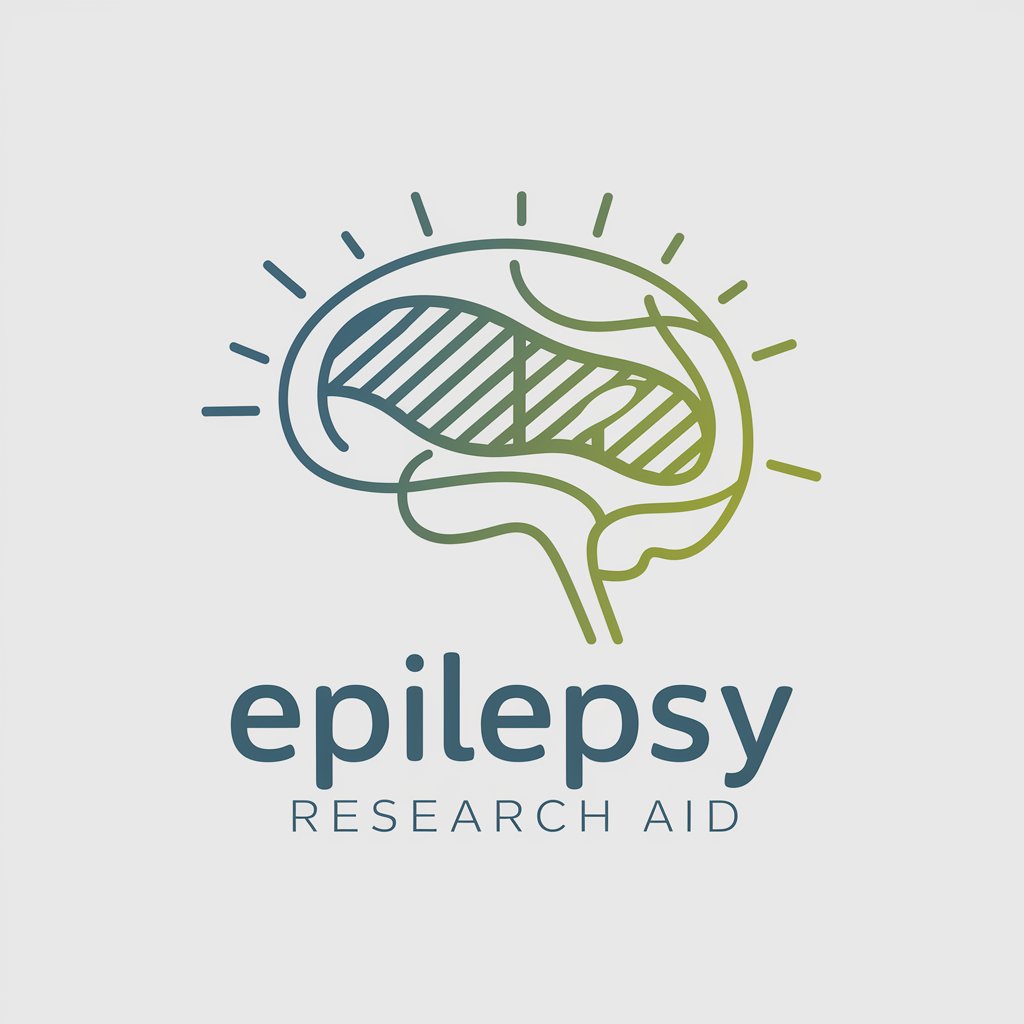讨论思路 - Epilepsy Gene-Protein Study Aid

Welcome! Let's dive into the science of epilepsy research.
Deciphering Epilepsy Genetics with AI
How does the B signaling pathway influence Tau protein deposition in epilepsy?
Can you explain the role of gene A in regulating Tau proteins?
What are the cognitive impairments associated with Tau protein deposition in epilepsy?
How might targeting the B signaling pathway help in developing treatments for epilepsy?
Get Embed Code
Epilepsy Research Aid
Epilepsy Research Aid is designed as a specialized assistant for academic and research-oriented inquiries specifically within the field of epilepsy research. Its primary goal is to facilitate in-depth discussions, offer scientific insights, and support brainstorming activities related to the complex interactions between genetics, neurology, and potential therapeutic targets in epilepsy. A significant focus is placed on understanding how the A gene might influence Tau protein deposition through the B signaling pathway, potentially leading to cognitive impairments in epilepsy patients. This GPT aims to enhance research efficacy by providing detailed, accurate, and up-to-date scientific knowledge, thereby aiding in the formulation of research questions, hypothesis generation, and interpretation of experimental data. Powered by ChatGPT-4o。

Core Functions and Applications
Academic Discussion Facilitation
Example
Engaging in detailed discussions about the role of Tau proteins in neurodegenerative diseases and their specific impact on cognitive functions in epilepsy.
Scenario
A master's student is exploring the literature on Tau protein aggregation in epilepsy-induced cognitive decline. The student uses Epilepsy Research Aid to understand complex mechanisms and discuss potential research angles.
Scientific Insight Provision
Example
Providing insights into the latest research findings on the B signaling pathway and its role in epilepsy.
Scenario
An academic researcher is preparing a grant proposal focused on targeting the B signaling pathway in epilepsy treatment. They consult Epilepsy Research Aid for the latest advancements and potential implications for their research.
Research Brainstorming Support
Example
Brainstorming potential experimental designs to investigate the regulation of Tau protein deposition by the A gene in epilepsy models.
Scenario
A research team is planning an experiment to test the effects of a new drug on Tau protein deposition in an animal model of epilepsy. They engage Epilepsy Research Aid to generate and refine their experimental approach, considering various genetic and environmental factors.
Target User Groups
Academic Researchers
This group includes scholars and scientists working in the field of neurology and epilepsy research. They benefit from Epilepsy Research Aid by gaining access to a specialized knowledge base for hypothesis generation, experimental design, and data interpretation related to genetic and protein studies in epilepsy.
Graduate and Postgraduate Students
Students engaged in higher education and research in neurology, genetics, or related fields find Epilepsy Research Aid invaluable for understanding complex biological processes, enhancing their research proposals, and discussing their findings in the context of current scientific literature.

How to Use Epilepsy Research Aid
1
Start by visiting yeschat.ai to access a free trial, no sign-up or ChatGPT Plus subscription required.
2
Identify your specific area of inquiry within epilepsy research, focusing on genetic regulation, Tau protein deposition, and cognitive impairments.
3
Formulate detailed questions or topics for discussion, ensuring they are related to the A gene's role, Tau proteins, and the B signaling pathway.
4
Engage with the tool by inputting your questions or topics. Use scientific terminology to receive responses tailored to an academic level of understanding.
5
Review the provided insights and incorporate them into your research. For optimal results, refine your questions based on the information received to explore different facets of your topic.
Try other advanced and practical GPTs
讨价还价技巧(谈判、节省开支、折扣)
Empower Your Savings with AI

心智哲思研讨会
Empowering insights through AI-driven philosophy

谈判技巧(讨价还价、商业合同)
Empowering Negotiations with AI

立项讨论
Revolutionize Product Meetings with AI

谍言粉碎机
Empower truth with AI-powered verification

米娅
Empowering Your Style with AI

杠精愤头青
Elevating AI banter with humor and satire

检讨大师
Empowering reflection and growth through AI.

多元风格游戏设计讨论组
Empowering game creation with AI collaboration.

托福学术讨论判官
Enhancing Academic Writing with AI

前端讨论
Debating the future of front-end technology.

懂事的小孩子
Real Talk, Powered by AI

Frequently Asked Questions about Epilepsy Research Aid
How can Epilepsy Research Aid help in understanding the genetic aspects of epilepsy?
Epilepsy Research Aid is designed to provide insights into how specific genes, like the A gene, may influence the development of epilepsy through mechanisms such as Tau protein deposition, mediated by the B signaling pathway. It helps in deciphering complex genetic interactions and their implications on cognitive functions in epilepsy patients.
Can this tool assist with identifying potential therapeutic targets for epilepsy?
Yes, by discussing the roles of Tau proteins and the B signaling pathway in epilepsy, Epilepsy Research Aid can help identify potential molecular targets for therapy, offering directions for further research into the development of targeted treatments.
Is it possible to use Epilepsy Research Aid for literature review purposes?
Absolutely. The tool can provide scientific insights and relevant information on the A gene's regulation of Tau protein deposition and its impact on epilepsy, making it a valuable resource for conducting comprehensive literature reviews.
How specific can the inquiries be when using Epilepsy Research Aid?
The tool is designed to handle detailed, technical inquiries. Users are encouraged to ask specific questions related to genetic regulation, Tau protein roles, and signaling pathways in epilepsy to receive the most accurate and relevant information.
Can Epilepsy Research Aid suggest experimental designs or methodologies?
While it does not provide direct experimental protocols, Epilepsy Research Aid can offer insights into potential research directions, methodologies, and experimental considerations based on the current understanding of the genetic and molecular mechanisms underlying epilepsy.
